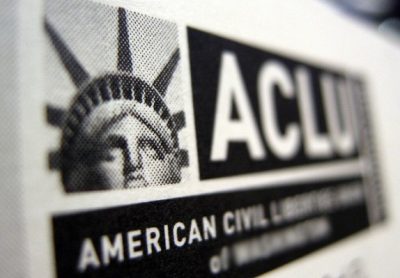Legal System
A just and fair legal immigration system upholds due process and adherence to the rule of law, while effectively managing immigration. Our efforts work to uphold the best version of the system, holding government entities accountable for fairly enforcing policies and addressing injustices at all levels of government.
What does the constitution say about due process?
The Fifth Amendment to the Constitution says clearly that no person shall be deprived of life, liberty, or property without the due process of law. Note that this says person, not citizen, and over the years the Supreme Court has consistently ruled that the Due Process Clause applies to all people in the United States.Do non-citizens have the right to due process in the U.S.?
Yes. The Constitution guarantees due process rights to all "persons," not just citizens. This means non-citizens, including undocumented immigrants, are entitled to fair treatment under the law. This includes the right to defend themselves in court. But recent Trump administration policies that speed up deportations and limit access to legal representation make it harder for non-citizens to get their fair day in court.- Access to legal representation Access to legal counsel is an essential part of our justice system and our democracy. In the criminal justice system, anyone facing even one day in jail gets a lawyer if they can't afford one. But immigrants facing deportation usually don't get that chance.The research is clear – the most effective way to ensure some level of due process for people navigating our complicated immigration system is for them to have trained attorney at their side. But Trump administration is now working to strip attorneys from as many people as possible, all in the name of increasing its deportation numbers. This attempt to eliminate basic due process will hurt people who already have few options.
- Fair day in court Due process guarantees that individuals have the opportunity to defend themselves in court. This includes non-citizens facing deportation.
Why is due process important?
We are seeing right now the importance of due process when it comes to President Trump's actions to carry out the so-called Alien Enemies Act, a 1798 wartime law that permits people to be deported outside of the normal framework of immigration law. President Trump has alleged that this law allows him to simply point at any person, declare them to be an alien enemy, and kick them out of the country without ever having a chance to see a judge. Thankfully, the Supreme Court said that is not true, and in a unanimous decision, ruled that people can challenge the Trump administration's invocation of the Alien Enemies Act. That is why due process is so important, because it means that no person can be rounded up and sent to another country without a chance to go to court and make the government prove their case.How is the American Immigration Council working to protect due process?
- We serve thousands of individuals in immigration detention centers through the Immigration Justice Campaign, our initiative with the American Immigration Lawyers Association. The Justice Campaign provides free legal services for immigrants who would otherwise have to navigate our complicated immigration system without a lawyer.
- We use the courts to demand a fair process for immigrants. Our litigation team is fighting back against the Trump administration’s blatant disregard for due process including filing a lawsuit challenging their illegal detention of immigrants in El Salvador’s notorious Terrorism Confinement Center (CECOT).

Senate Judiciary Committee Holds Key Hearing on Challenges Facing Immigration Courts
Washington, D.C.—The American Immigration Council’s Legal Action Center commends Senator Patrick Leahy (D-VT), Chairman of the Senate Judiciary Committee, for convening today’s hearing on “Improving Efficiency and Ensuring Justice in the Immigration Court System.” Immigration courts have long suffered from crushing backlogs that can delay the scheduling of hearings… Read More

Another Study Highlights Need for Legal Representation in Immigration Court
Findings released last week by the New York Immigration Representation Study reveal what immigration advocates long have said: whether a person has legal representation is a critical factor in obtaining a favorable result in immigration court. The findings—which are based on a study of individuals apprehended in New York from October 2005 through December 2010—show that amongst noncitizens who are not in detention, 74 percent of those with lawyers obtained favorable outcomes, versus only 13 percent of those without lawyers. Amongst noncitizens in detention, 18 percent of those represented by attorneys obtained favorable outcomes in immigration court, versus only 3 percent of those who lacked representation. Read More

ACLU Files Lawsuit Against Utah’s Immigration Enforcement Law
Today, the American Civil Liberties Union (ACLU), National Immigration Law Center (NILC), and the law firm of Munger, Tolles & Olsen filed a class action lawsuit against Utah’s HB 497— an SB1070-inspired immigration-enforcement bill. Last March, Utah passed three distinct immigration bills that collectively were designed to go beyond the enforcement-only approach of Arizona’s SB1070 through the addition of state-based guest worker programs. Those programs, however, do not go into effect until a host of other conditions are met, leaving the enforcement provisions of HB 497 as the only part of the Utah plan with any teeth. Set to go into effect on May 10, HB 497 presents many of the same Constitutional challenges as SB 1070, thus making a court challenge inevitable. Read More

Federal Court Decision Protects H-1B Employees from Wrongful Arrest
Washington D.C. – A recent ruling from a federal judge in Connecticut confirmed that—as the American Immigration Council (AIC) and the American Immigration Lawyers Association (AILA) argued in an amicus brief—the government may not arrest H-1B employees for whom timely-filed extension applications remain pending. The decision in… Read More

Four Cheers for the Ninth Circuit’s Ruling on SB 1070
In a clean sweep for the rule of law, the U.S. Court of Appeals for the Ninth Circuit upheld a preliminary injunction yesterday against four key provisions of SB 1070—Arizona’s notoriously misguided attempt to drive undocumented immigrants from the state. The court’s comprehensive ruling left in place a lower court decision from July which temporarily blocked much of the measure from going into effect. Though the future of the case is far from settled, the upshot of the decision is clear: the federal government, and the federal government alone, sets the terms for enforcing federal immigration law. Read More

Legal Action Center Pursues Campaign to Protect Judicial Review
Washington D.C. – In a continuing effort to protect the right to judicial review and promote greater federal court oversight of immigration decisions, the American Immigration Council’s Legal Action Center (LAC) recently submitted an amicus brief in another case involving a sua sponte motion to reopen. A three-judge panel in… Read More

Access to Counsel Before ICE
The American Immigration Council, with co-counsel Dorsey & Whitney LLP, filed a lawsuit against the Department of Homeland Security (DHS) and U.S. Immigration and Customs Enforcement (ICE) to compel the release of records relating to noncitizens’ access to counsel. Read More

Access to Counsel Before USCIS
The American Immigration Council, with co-counsel Dorsey & Whitney LLP, filed a lawsuit against the Department of Homeland Security and U.S. Citizenship and Immigration Services to compel the release of records relating to noncitizens’ access to counsel. Read More

IJs Should Exercise Authority to Halt Proceedings against Noncitizens with Serious Mental Disabilities
Washington D.C. – This week, the American Immigration Council’s Legal Action Center (LAC) and Texas Appleseed filed an amicus brief with the Board of Immigration Appeals (BIA) supporting Immigration Judges’ authority to terminate removal proceedings against noncitizens with serious mental disabilities where a full and fair hearing… Read More

Legal Action Center Urges Court to Strike Down Regulation Barring Post-Departure Motions to Reopen
Washington D.C. – This week, the American Immigration Council’s Legal Action Center, joined by the American Immigration Lawyers Association, submitted an amicus brief to the Tenth Circuit Court of Appeals in Contreras-Bocanegra v. Holder, urging the court to strike down the Board of Immigration Appeals’ (BIA)… Read More
Make a contribution
Make a direct impact on the lives of immigrants.
